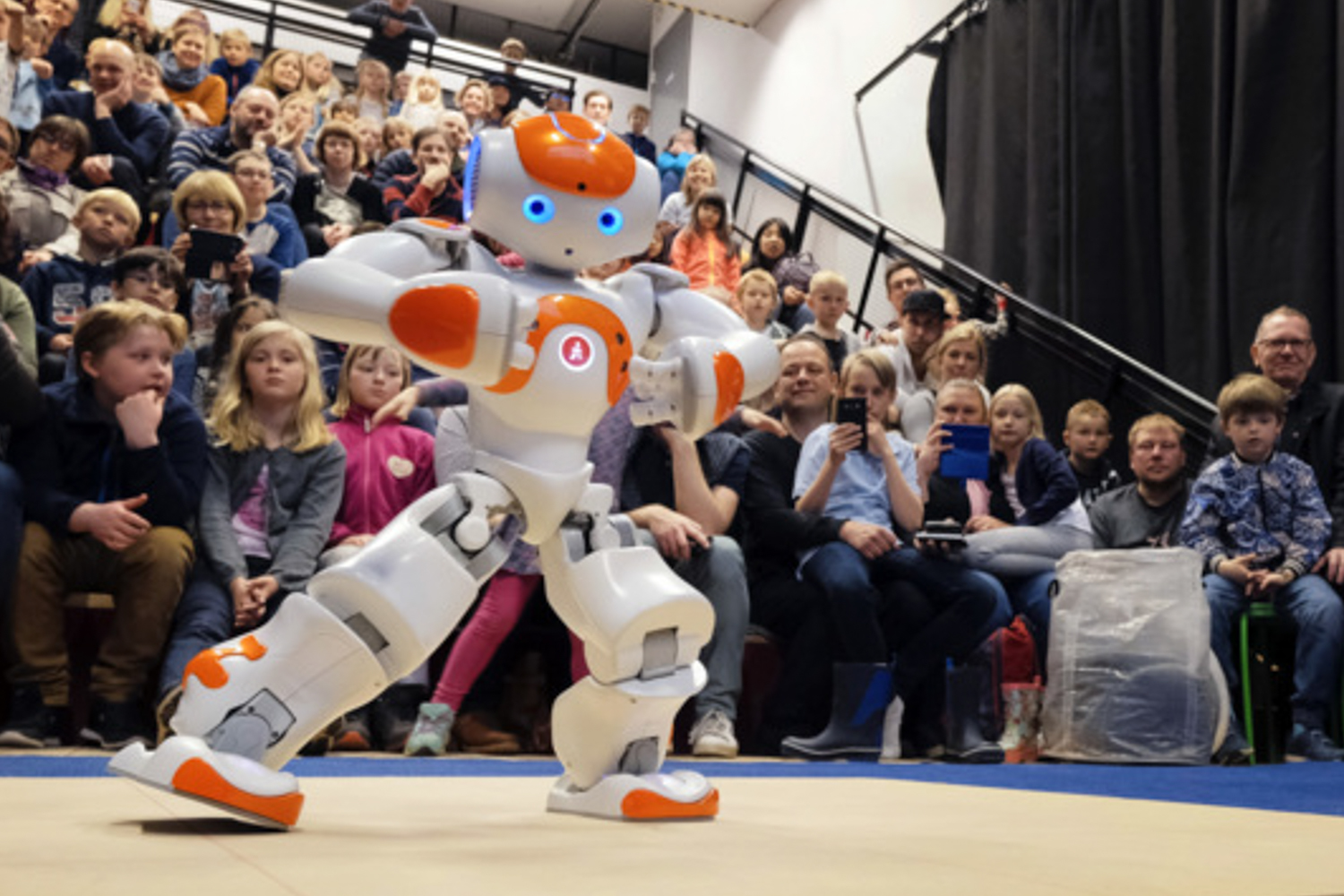
 We are thrilled to find Law alumni Pamela Finckenberg-Broman and Morgan M. Broman as distinguished speakers about The RAiLE© Project at the IEEE 4th World Forum on Internet of Things in Singapore. We got in contact with Morgan a week before the world forum to learn more.
We are thrilled to find Law alumni Pamela Finckenberg-Broman and Morgan M. Broman as distinguished speakers about The RAiLE© Project at the IEEE 4th World Forum on Internet of Things in Singapore. We got in contact with Morgan a week before the world forum to learn more.
Q: Could you share some of your insights about The RAiLE© Project?
First, we have to make clear what the basis for a RAiLE© is. The word itself stands for an integrated, autonomous Robotics/AI Legal Entity. The AI we are discussing is the one that, using a popular term, is at or very close to achieving the intellectual stage “singularity”.
The more autonomous robotics+AI combination that we are looking at is something we are beginning to see in our society today in the form of the so called autonomous vehicles. Already around the autonomous vehicles there are several legal questions arising, mostly about accountability/liability in case of accidents. However, once this form of combined robotics and AI becomes more and more an integrated part of our daily lives even more questions arise regarding how to handle them from a legal aspect.

Another important aspect to this research is the realization and impact of the cultural divide in approach to our subject matter. In the western world we often see the “rise of the machines” described as something scary (i.e. Terminator, War Games etc.). In Asia and many other places, the intellectual and emotional approach is different, these entities are often described as benign, as enhancers and supporters of human life.
At this stage of our research, as we are looking for financing to develop it further, we see a growing interest in our cross-science/multi-disciplinary approach. We meet many researchers that are experts in their own field, but they do not always understand or even consider the impact of their research, especially in combination with other areas, on our society. We focus on the combination of the software (AI), hardware (robotics) as a legal entity and its impact on international trade, businesses and private life.
Q: What sparked your interest on the legal aspects of Robotics and AI?
I had my first experience with computers in the late 1970’s when visiting UCLA’s data center while studying in the USA which triggered a fascination with computer tech. Later when studying IT at Lund University back in the previous millennium (1980’s) I was interested in how we could use computers in our daily life.
After several years of working in the IT/Telecom business I got involved in contractual B2B negotiations, after my wife and co-partner in this research, pointed out some legal issues with a contract I was drafting, I realized I needed to know more.
Once I got into law studies at Lund, first at the Department of Business Law (Handelsrätt @ EHL), then at Lund’s Faculty of Law 2-year LL.M. program, I found that much legal literature and articles on technology lacked a solid grasp of the underlying tech. This led to misinterpretations and use of the wrong terminology in many places.
The specific trigger for the RAiLE© Project came while me and Pamela were writing an extensive piece on Unconditional Basic Income (UBI) (NOTE not Universal). The first irritation was the erroneous use of Universal rather than Unconditional, but further on we looked at the effects of automatization on the workforce. This led us into a look where the current research on robotics and AI was heading. Then all the other pieces fell into place.
Q: In 15-20 years’ time, do you think we can expect legislation where robots and AI are given legal status?
Yes, both the EU and several Asian countries are already in the process of trying to figure this out. There are several issues with these try-outs though. One is lack of specificity in terminology used, another is that these are only embryonic and limited in focus.
A large part of this is based on the previously mentioned lack of multi-disciplinary approach. Our goal and hope is to be able to use our research to help with that. We currently work closely with IEEE/SSIT on the subject with articles and presentations.
Q: Do you use any smart products, artificial intelligence or even robotics in your daily lives?
Depends on the definition used, my mobile phone, pad etc. even the PC sure can be seen as smart products with limited AI capabilities. As for robotics, unless we count my car, currently less so. Our youngest daughter has a small Star Wars robot that she is very fond of.

Q: And the mandatory question, what’s your favourite memory from the student life in Lund?
Wow, BIG question, there are so many from the great student friends I met over the years, to the many excellent lecturers I have had from both EHL and the Law School, the founding of LuSyFor and so on. But if there is one key moment that stands out it would be from one of my old courses at Systemvetenskapliga Institutionen.
During one of the first classes in one of the courses the lecturer/teacher set up a system design project for the class. At the end he asked for questions. I raised my hand and told him I thought there was a “smarter” way to do it. He looked at me smiled and said “Alright, you are in charge of the whole class for this project.” I remember thinking “…sure, how hard can it be.” At the end of the course, after some people on the team had worked like crazy, while others maybe were less motivated, we presented the outcome. The lecturer/teacher then congratulated the class and told us we had done a good job. I raised my hand once more, he looked at me… “Yes?”. I told him in front of the class that he had been right from the beginning, his way would have been better. For me that was a lesson for life! It cannot be much better than that.
